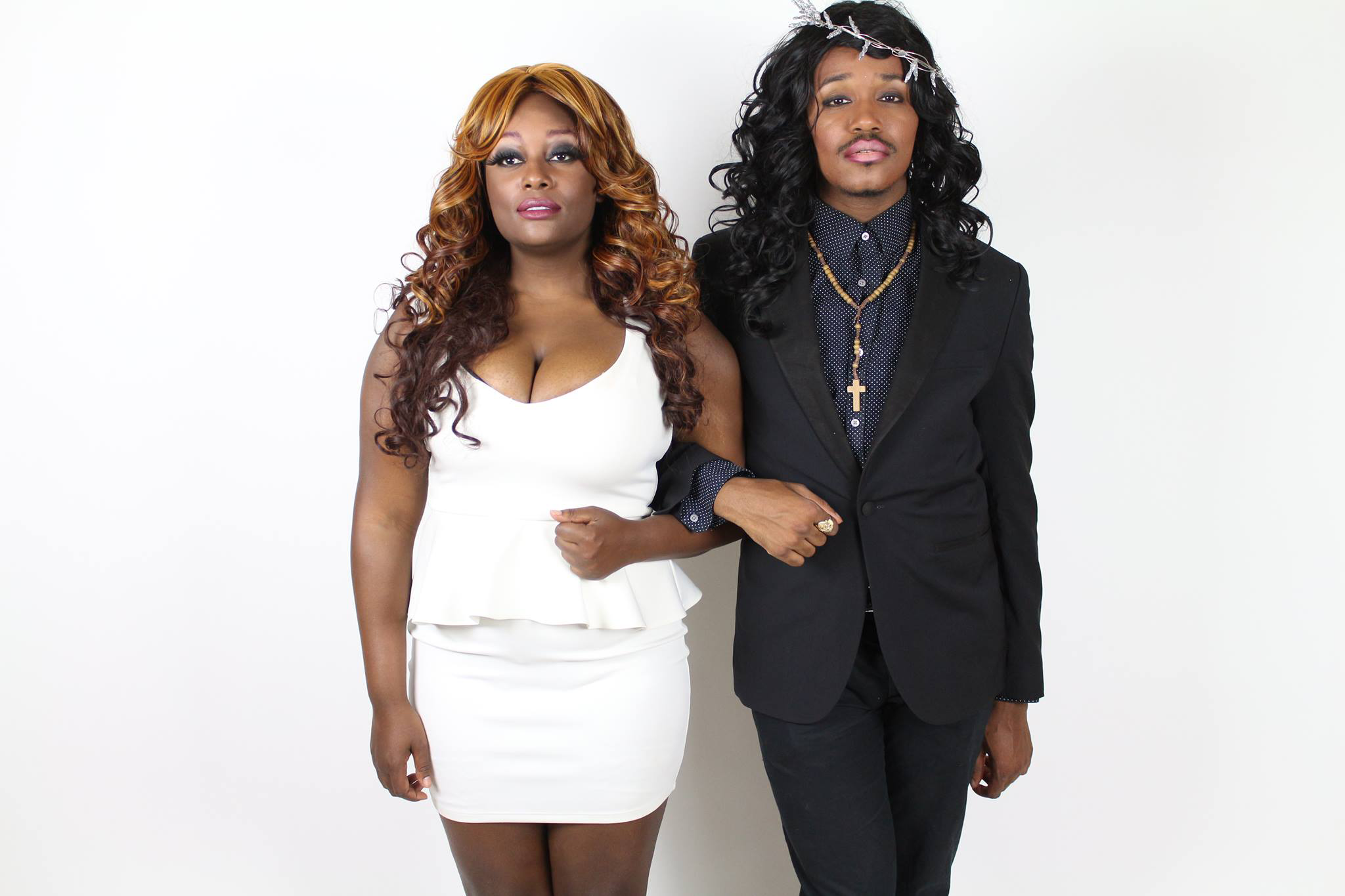Beyoncé takes the stage in a fury of passion and grace that quickly and hilariously descends into hobbled flailing and spasms. Luckily, Jesus shows up to give her a hand.
This surreal staging is the brainchild of Marquette Park native Dewayne Perkins. Since his recent graduation from DePaul University, Perkins has found his place in Chicago’s comedy circuit with a sketch group, Bleep That Bleep, and a Second City Training Center show, No Selfie Control. Perkins writes and performs his own material in both contexts.
The center of Bleep That Bleep’s performance at the Chicago Sketch Fest this January was Perkins’s sketch Beyoncé featuring Jesus, in which the title characters switch places. As it turns out, Beyoncé is a better savior than Jesus, but not even Jesus can do what Beyoncé does. Other sketches from Sketch Fest had similarly bawdy religious themes, as Perkins considered the first dick-pic carved into stone tablets on Mount Sinai and an episode of MTV True Life starring the biblical Jonah.
No Selfie Control, which opened last week and will be performed Saturdays through May 2, is a more personal show exploring the concept of identity. Perkins proves himself a versatile performer—from a child on a field trip seeing rapping Abraham Lincoln to Jesus Christ in Beyoncé’s body to a school principal presenting a performance by the Wes Anderson Feminist Club, he is always a riot and a half.
Perkins often presents shorter sketches during No Selfie Control about things he wishes he could say and do but are inappropriate to mention in real life, such as referring to black beans as “Negro beans” at Chipotle. He also showcased his impeccable dance skills in a sketch about the Chicago Flame Department as a fellow cast member poured a cup of water on him.
Beneath Perkins’s silliness lies a serious intent to fuel open dialogue about issues of race, gender, and sexuality. As a gay black man, Perkins has found breaking into the comedy world difficult. “You have to make your own seat at the table,” he said. There’s not necessarily a chair for you. The comedy world is made for white males.”
The pressure of an unfair and unequal industry forces Perkins to be quicker, sharper, and funnier; he tries to make his own opportunities by writing original material. There is a sense of rebellion in Perkins’s sketches: by playing authority figures such as Jesus and other biblical figures he actively invites the audience to laugh at them. Comedy has also made it easier for Perkins to lure people into more serious issues.
“Just when they think, ‘Oh, he’s one of those safe black people,’ I punch them in the face with comedy,” he said.
Perkins tackles daunting issues in a silly manner, and he is brilliant at diffusing tension with humor. In No Selfie Control, Perkins plays a gay man re-coming out to his parents, claiming in the sketch that being gay carries an enormous amount of pressure and that he’d rather be straight.
“Being straight is like swimming one lap in a swimming pool, and being gay is like swimming ten laps in a pool full of glitter! And glitter is basically just little gay pieces of glass!”
In Perkins’s hands, comedy becomes a tool for social change by making heavy subjects less uncomfortable to talk about.
“It opens people’s minds to different personas of blackness and gayness,” he said.

